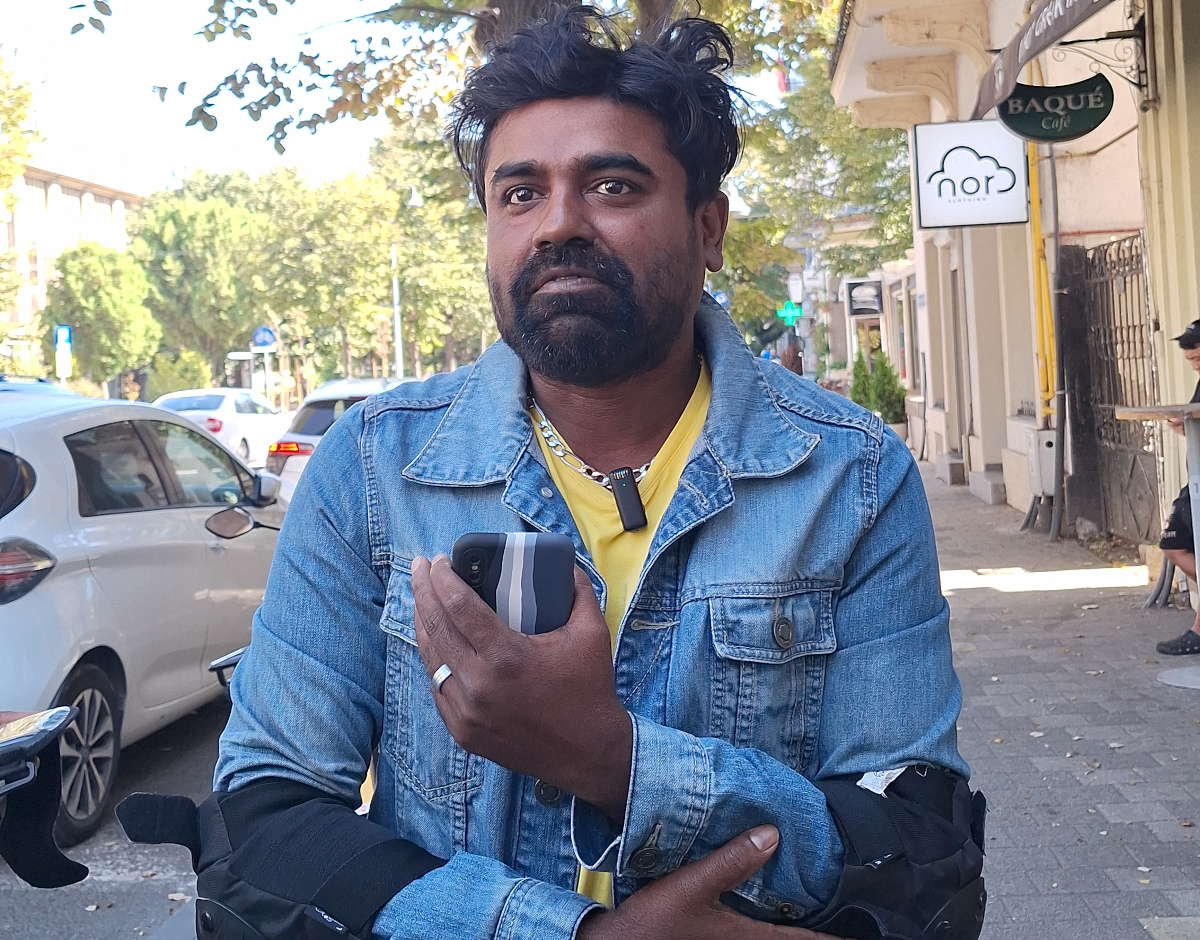
Ruwan is 34 years old and has been delivering food in Constanța for some time as an employee of a delivery company. Given that of the 130,000 residence permits issued in the country, more than 50% are for work, his situation is typical, especially as he is part of one of the largest groups of immigrants to Romania from Sri Lanka in recent years, along with people from India, Nepal and Bangladesh.
Article initially published on G4Media.ro, as part of the ENTR project
The number of immigrants has almost quadrupled in Romania in the last ten years and the impact on the labour market is significant, both economically and socially.
The motivation to come here is simple for Ruwan: Romania is an accessible country where they can earn much more money than at home.
“Yes, but when you compare Europe, Asia, Sri Lanka and Europe, you can easily get work visas for Romania. But when we try to get them in another country, like Germany or any other country in Europe, in the Schengen area, it’s too difficult to go and work there. If we apply to Romania from our country, we can easily get the work permit. That’s why we came here,” explains Ruwan.
Under these circumstances, Romania is also an attractive target because of the much higher wages. According to Ruwan, he earns 3,500 lei a month, two or three times more than he would earn in his home country for the same work, and his employer provides him with food, accommodation and some facilities (TV in the room, etc.).
For these conditions, however, the work is not easy. Ruwan works for a company that asks him for a target of 20 deliveries a day – on a normal day. This target takes between 10 and 12 hours of work. It’s all down to circumstances, though. A day with lots of orders can be completed more quickly, but on a more difficult day it may take a few extra hours of work to cover the minimum required number of orders.
This work arrangement may seem draconian, but Ruwan is happy with it. His family, back in Sri Lanka, depends on the money he earns to survive, and when asked how much he likes Romania, the young man simply said, “I like this country, you know, this beautiful, beautiful country.”
The experience is, however, hampered by communication problems – Ruwan and his colleagues have to speak only English, but interacting with many people can remain difficult. Even in this regard, however, the young Sri Lankan is keen to point out that three-quarters of his social interactions in Romania are positive.
Speed bumps are, in Ruwan’s words, a much bigger obstacle to his work than negative customer experiences. Sri Lankan roads don’t have speed limiters, and adapting to this aspect of Romanian traffic has proved a shock. He also noted that Romanian roads have many potholes and bumps.
The Sri Lankan had little to say about his relationship with his boss. “No problem with my boss, my manager. It’s fine with me”.
- Watch the VIDEO interview, here.
Several Sri Lankan workers, food couriers, explained to Info Sud-Est why they chose to come to Romania and why our country has become, in recent years, a choice for Sri Lankans, who are among the largest ethnic groups, by number of residence permits, in our country.
Ruwan’s experience in the country does not seem to be unique, especially among his fellow countrymen. Rafan, Kavindu and Eranda are three young men aged 23, 24 and 26 respectively who came to Romania at different times and have only been working here for a few months, but they have developed a fast friendship at work as they all ended up working for the same company through a recruitment agency operating in Sri Lanka.
As with Ruwan, communication is one of the main difficulties. Kavindu and Eranda relied on the translations of Rafan, by far the best English speaker in the group, to give their statements.
The three describe almost the same working conditions as Ruwan – pay, accommodation and food in exchange for long delivery hours of 10-12 hours a day, but which can be as long as 15 hours.
Rafan mentions that one Romanian leu is worth the equivalent of 70 Sri Lankan rupees. Given that, according to Trading Economics, the minimum wage in Sri Lanka is 12,500 rupees a month (about 180 lei), it’s no wonder so many Sri Lankans come here to help their families.
It’s worth remembering that a significant part of the money earned by workers like Ruwan and Rafan goes back to their home countries. An Economedia analysis shows that in the first six months of 2023, money sent from Romania to Nepal increased by 10 times compared to the same period last year, and to Sri Lanka by 5 times – and this is just the data provided by Revolut.
In any case, the three friends say they are happy in Romania, even though they arrived here only a few months ago. They have caught the summer festival season in Constanța, which they are happy about, and most people in Romania are friendly. Of course, not all experiences are positive. Rafan mentions small problems interacting with customers and bickering in traffic, but won’t elaborate.
Socially, the three have been lucky. They didn’t know each other before coming to Romania, but they struck up a fast friendship. What’s more, a certain camaraderie was also formed with some of the Romanian couriers.
*Delia Dascălu contributed
Ne bucurăm că ne citești!
Dacă vrei să ne și susții:











